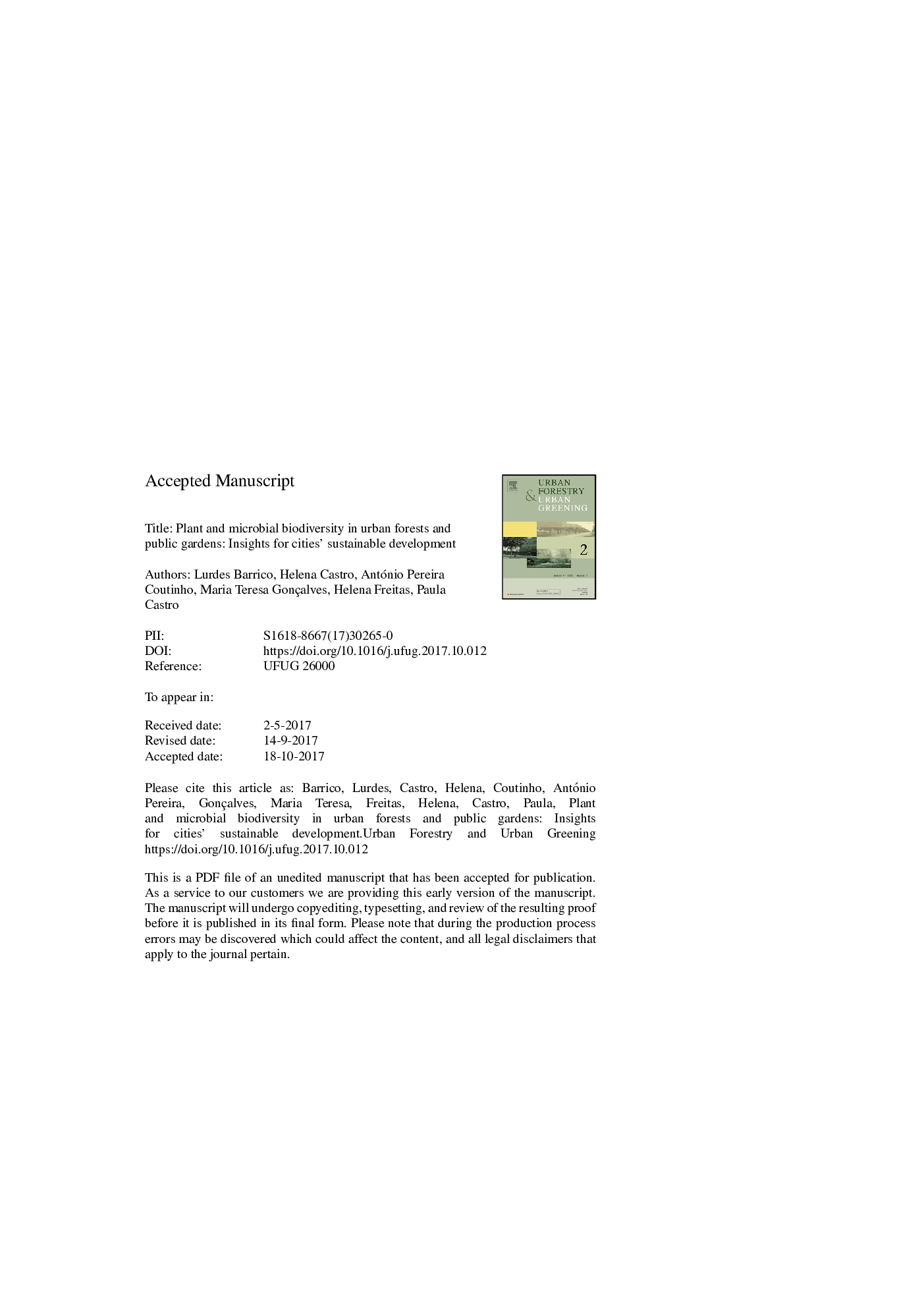| Article ID | Journal | Published Year | Pages | File Type |
|---|---|---|---|---|
| 6549373 | Urban Forestry & Urban Greening | 2018 | 33 Pages |
Abstract
As the world's population gets increasingly more urban, the preservation of urban green spaces becomes an important issue in the political agenda worldwide. These spaces may mitigate the negative environmental impacts of urbanisation and improve quality of life. Aiming to increase knowledge in urban biodiversity we compared the diversity of vascular plants and soil microbial communities (fungi and bacteria) in two contrasting typologies of urban green spaces (public gardens and remnant forests) in the city of Coimbra (Portugal). We found 252 taxa of vascular plants of which 58% were native and 42% exotic. Although overall diversity indices were similar in both typologies of green spaces, species richness and percentage cover of native taxa were significantly higher in forests than in gardens. Overall, plant communities in the two typologies of green spaces were distinct. We found high variability among gardens, which is consistent with vegetation in gardens being determined by man rather than by competitive or successional processes. Interestingly, the disparity between gardens and forests was also visible for both bacterial and fungal communities indicating an association between above and below-ground communities. We showed that, due to their origin, remnant forests harbour plant taxa with high conservation and ecological values. It also showed that gardens have higher percentage of exotic species, which led us to conclude that native plant species should be given more emphasis in these spaces. City planners should promote urban development by incorporating an ecological perspective into their management plans to enhance human health and global environmental quality.
Keywords
Related Topics
Life Sciences
Agricultural and Biological Sciences
Forestry
Authors
Lurdes Barrico, Helena Castro, António Pereira Coutinho, Maria Teresa Gonçalves, Helena Freitas, Paula Castro,
